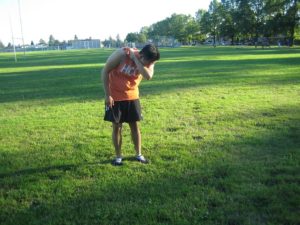Hypersalivation occurs if the salivary glands release more saliva than usual. If the excess saliva starts to buildup, it might drip out of the mouth involuntarily.
Among adults and older children, drooling might be a sign of an underlying condition. It is important to note that hypersalivation might be brief or chronic depending on the root cause.
What are the possible causes?
A brief episode of hypersalivation is typically caused by:
- Infections
- Cavities
As for constant hypersalivation, it is typically brought about by chronic health conditions that involve muscular control. - Gastroesophageal reflux
- Exposure to toxins such as mercury
- Certain anticonvulsant drugs and tranquilizers
- Pregnancy
In most cases, hypersalivation usually settles once the underlying condition is treated.
As for constant hypersalivation, it is typically brought about by chronic health conditions that involve muscular control. If the muscle control is impaired, it can disrupt the ability to swallow, leading to the buildup of saliva.
Take note that this can stem from the following:
- Stroke
- Enlarged tongue
- Malocclusion
- Cerebral palsy
- Facial nerve palsy
- Parkinson’s disease
If the root cause is a chronic condition, management of the symptoms is vital. If left untreated, hypersalivation can disrupt the ability to speak or swallow food and drink without choking.
Management of hypersalivation
The treatment is based on the underlying cause. Even though home remedies are beneficial for brief cases, chronic cases typically require further treatment.
Home remedies
If a cavity or infection is suspected as the root cause of the symptoms, a dentist must be seen. In such instances, regular brushing can help lessen the gum inflammation and mouth irritation which causes drooling. The brush can also trigger a drying effect on the mouth. In addition, an alcohol-based mouthwash can be used.
Medications
Some drugs can be used to lessen the production of saliva such as:
- One commonly used drug is glycopyrrolate which works by blocking the nerve signals to the salivary glands to produce less saliva.
- Another option is scopolamine which is a skin patch applied behind the ear. It works by blocking the nerve signals to the salivary glands.
Injections
Botulinum toxin shots might also be recommended by the doctor for constant hypersalivation. The drug is injected into one or several main salivary glands. The toxin paralyzes the nerves and muscles in the site to prevent the glands from releasing saliva.
Surgery
In serious cases, hypersalivation is treated with surgery on the major salivary glands. The glands might be removed entirely or relocated so that saliva is released in the rear of the mouth where it is easily swallowed.
Radiation
If surgery is not an option, radiation therapy is suggested by the doctor. The radiation results to dry mouth which relieves hypersalivation.

